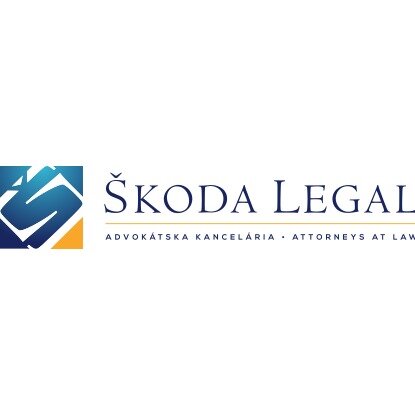Best Agriculture Lawyers in Slovakia
Share your needs with us, get contacted by law firms.
Free. Takes 2 min.
Or refine your search by selecting a city:
List of the best lawyers in Slovakia
About Agriculture Law in Slovakia
Agriculture in Slovakia is a vital sector that plays a significant role in the country's economy and cultural heritage. It involves various activities such as farming, livestock breeding, forestry, and fishing. The landscape is characterized by fertile plains and rich biodiversity, which are conducive to agricultural activities. Slovak agriculture is regulated by a combination of national laws, European Union regulations, and international accords.
Why You May Need a Lawyer
Individuals and businesses engaged in agriculture in Slovakia may need legal assistance for numerous reasons. Here are some common situations where legal help is beneficial:
- Land Acquisition and Use: Navigating property laws to acquire or lease agricultural land, understanding zoning regulations, and land tenure issues.
- Compliance with Regulations: Ensuring compliance with environmental regulations, health and safety standards, and other statutory requirements.
- Subsidies and Funding: Applying for and securing EU or government subsidies and grants for agricultural projects.
- Contractual Agreements: Drafting contracts for the purchase and sale of produce, leasing equipment, or employment agreements with farm workers.
- Dispute Resolution: Handling disputes with neighbors, suppliers, or employees, and engaging in mediation or litigation if necessary.
Local Laws Overview
Agriculture in Slovakia is governed by a variety of laws that reflect the country’s agricultural policies and commitments under the European Union Common Agricultural Policy (CAP). Key aspects of the local laws include:
- Land Ownership and Tenure: Laws that govern the registration, ownership, and usage rights of agricultural land.
- Environmental Regulations: Standards for sustainable farming, waste management, and the use of pesticides and fertilizers.
- Animal Welfare: Regulations pertaining to the humane treatment and welfare of livestock.
- Food Safety: Ensuring that agricultural products meet health and safety standards for both domestic consumption and export.
- Subsidies and Grants: Rules for accessing and using financial support provided by the government and the EU.
Frequently Asked Questions
What is the process for acquiring agricultural land in Slovakia?
The acquisition of agricultural land typically involves checking land registries, obtaining necessary permits, and ensuring adherence to zoning and land use regulations. Legal assistance can help navigate these processes.
Can foreign nationals own agricultural land in Slovakia?
Following Slovakia's accession to the EU, restrictions have been relaxed, but there are still certain conditions and reciprocities that apply. Professional legal advice is recommended to understand these nuances.
What are the environmental regulations affecting agriculture?
Environmental regulations include rules on sustainable land use, pollution control, water management, and biodiversity conservation. Compliance is mandatory for all agricultural activities.
How can I apply for EU agricultural subsidies?
Farmers can apply for subsidies through the Slovak Ministry of Agriculture and Rural Development. This process involves fulfilling eligibility criteria and adhering to the stipulated usage of funds.
What are the main labor laws affecting agricultural workers?
Labor laws ensure fair wages, safe working conditions, and rights for both seasonal and permanent agricultural workers. Employers must comply with these regulations to avoid legal issues.
How is organic farming regulated in Slovakia?
Organic farming is regulated through specific standards that ensure environmentally friendly practices. Certification is required to market produce as organic, overseen by national and EU bodies.
What should be included in a contract for selling agricultural products?
Contracts should specify terms such as quantities, prices, delivery schedules, quality standards, and contingencies for disputes or defaults. Legal advice can help ensure comprehensive coverage.
How are agricultural disputes typically resolved?
Disputes may be resolved through negotiation, mediation, arbitration, or litigation. The chosen method often depends on the parties involved and the nature of the dispute.
Are there specific laws for livestock farming?
Yes, there are specific regulations concerning animal welfare, environmental impact of livestock farming, health inspections, and biosecurity measures.
What role do cooperatives play in Slovak agriculture?
Agricultural cooperatives facilitate collective farming efforts, negotiation for better terms, and shared resources among farmer members, playing a pivotal role in the agricultural sector.
Additional Resources
Below are some resources and organizations that can assist those seeking legal advice in agriculture:
- Ministry of Agriculture and Rural Development of the Slovak Republic: Provides information on policy, regulations, and support programs.
- Slovak Agricultural and Food Chamber: Offers guidance and represents the interests of the agricultural sector.
- EU Common Agricultural Policy Resources: Detailed information on subsidy programs and compliance standards.
- Slovak Environmental Agency: Information on environmental regulations and sustainable practices in agriculture.
- Crisis Management Centers and Agricultural Insurance Providers: For risk management and safeguarding against unexpected agricultural crises.
Next Steps
If you require legal assistance in agriculture within Slovakia, it's advisable to take the following steps:
- Identify Your Needs: Clearly outline the specific legal assistance needed, such as contract drafting, compliance support, or dispute resolution.
- Research Legal Experts: Look for lawyers or legal firms that specialize in agricultural law within Slovakia.
- Prepare Documentation: Gather all relevant documentation and records related to your agricultural operations or legal concerns.
- Seek an Initial Consultation: Contact a legal professional for an initial consultation to discuss your situation and explore potential legal strategies.
- Understand the Costs: Be sure to discuss and understand the potential costs involved in obtaining legal services.
By taking these steps, individuals and businesses engaged in agriculture in Slovakia can ensure they are making informed decisions with the necessary legal support.
Lawzana helps you find the best lawyers and law firms in Slovakia through a curated and pre-screened list of qualified legal professionals. Our platform offers rankings and detailed profiles of attorneys and law firms, allowing you to compare based on practice areas, including Agriculture, experience, and client feedback.
Each profile includes a description of the firm's areas of practice, client reviews, team members and partners, year of establishment, spoken languages, office locations, contact information, social media presence, and any published articles or resources. Most firms on our platform speak English and are experienced in both local and international legal matters.
Get a quote from top-rated law firms in Slovakia — quickly, securely, and without unnecessary hassle.
Disclaimer:
The information provided on this page is for general informational purposes only and does not constitute legal advice. While we strive to ensure the accuracy and relevance of the content, legal information may change over time, and interpretations of the law can vary. You should always consult with a qualified legal professional for advice specific to your situation.
We disclaim all liability for actions taken or not taken based on the content of this page. If you believe any information is incorrect or outdated, please contact us, and we will review and update it where appropriate.
Browse agriculture law firms by city in Slovakia
Refine your search by selecting a city.










